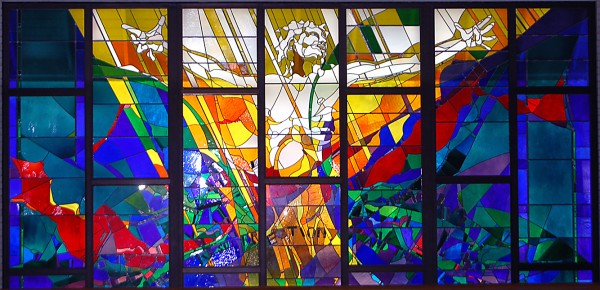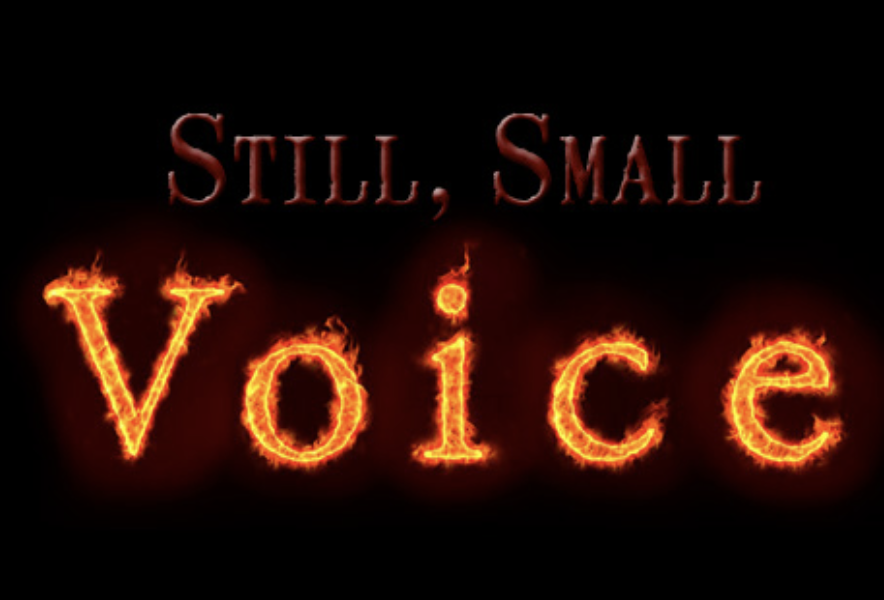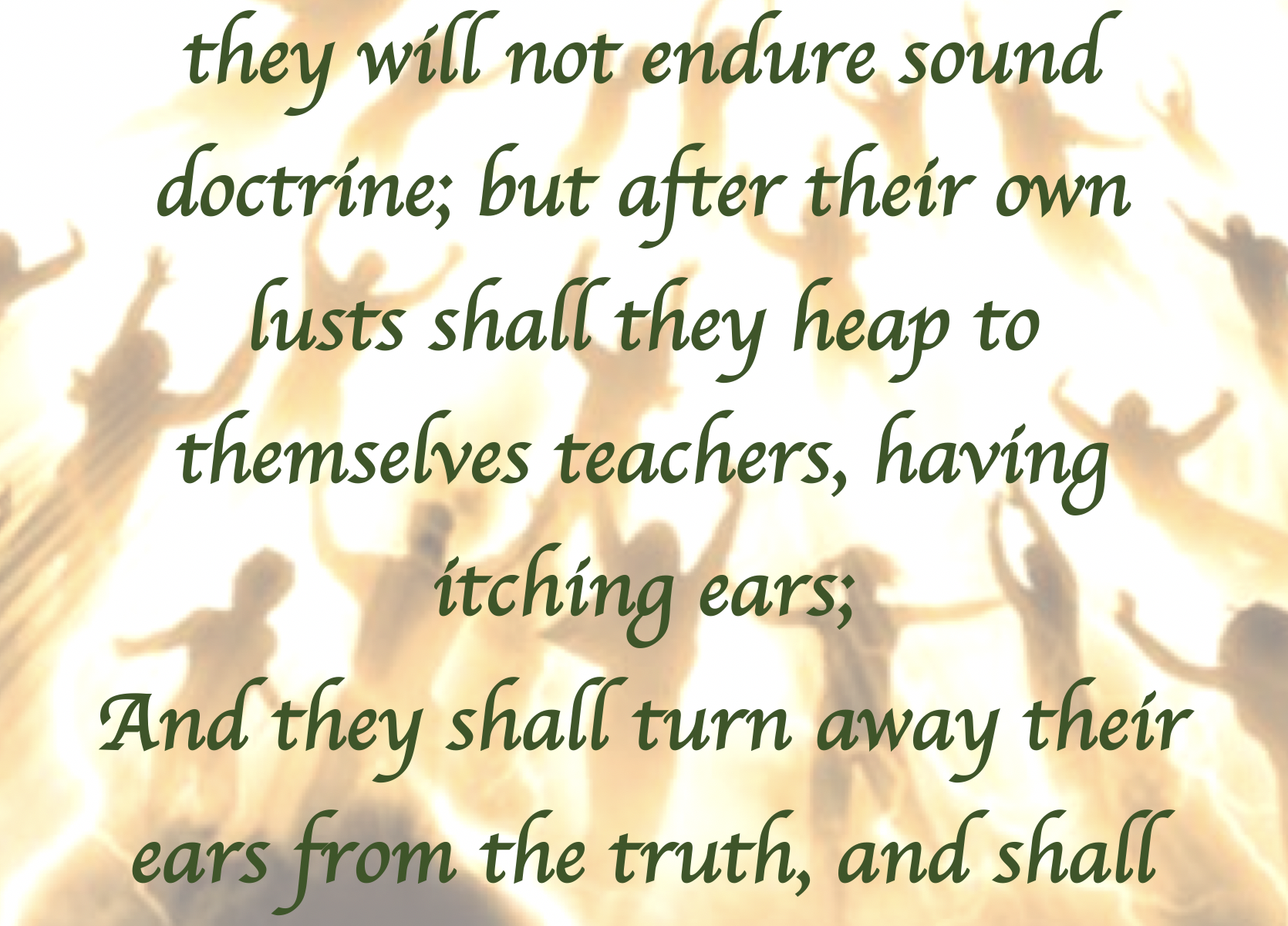LORD, they have killed your prophets, and digged down your altars; and I am left alone, and they seek my life.
The title is Paul, in Romans 11:3, quoting 1 Kings 19:10, in a pattern (wheel within a wheel) telling us of the moment and giving us understanding, the strength, to overcome it and win the day.
In 1 Kings 19, in the verses that follow and come before the verse Paul next quotes in Romans 11:4, is depicted today’s world in utter ruin. In them, the LORD describes His Spirit moving as wind, by which the mountains are rent, meaning the places of power that have risen up and loom over the earth are in ruin. We know this as the condition the world (aion – the age) became before the LORD’s refreshing, creating it anew, as described in Genesis 1:2, when it “became (hayah) without form (tohuw), and void (bohuw); and darkness was upon the face of the deep (when ignorance ruled over the world).” To this description Jeremiah, using the same Hebrew words (Jeremiah 4:23), adds the further parenthetical understanding, saying it’s when mountains trembled and there was no man.
As often discussed, the words (tohuw bohuw) only appear together one other time, in Isaiah 34:11 where they are rendered “confusion” and “emptiness.” These words are telling of the world with a foundation laid out with a measuring line of confusion, and on it were stones of emptiness. The confusion is a product of corrupt foundational ideas (stoicheion – elements) and stones build on these ideas are worthless leaders, who Isaiah says in the following verses are as thorns that have come up in our palaces.
Genesis 1
2 And the earth was [hayah – became] without form [tohuw], and void [bohuw]; and darkness [ignorance] was upon the face of the deep [knowledge, uncorrupted data, suppressed way below the surface where it isn’t seen]. And the Spirit of God moved upon the face of the waters [moved upon the surface so what was held in the depths is seen].
3 And God said, Let there be light [understanding that comes into and after the darkness – into the few, the elect remnant]: and there was light [understanding].
4 And God saw the light [understanding], that it was good: and God divided the light from the darkness [and God separated understanding from ignorance, His elect remnant from the ignorant – and a new heaven and earth age is created, wherein dwells righteousness].
5 And God called the light Day, and the darkness he called Night. And the evening and the morning were the first day.
John 1
1 In the beginning was the Word, and the Word was with God, and the Word was God.
2 The same was in the beginning with God.
3 All things were made by him; and without him was not any thing made that was made.
4 In him was life; and the life was the light [understanding] of men.
5 And the light shines in darkness; and the darkness [the ignorant] comprehended it not.
6 There was a man sent from God, whose name was John.
7 The same came for a witness, to bear witness of the Light, that all men through him might believe.
8 He was not that Light, but was sent to bear witness of that Light.
9 That was the true Light, which lights every man that comes into the world.
10 He was in the world, and the world was made by him, and the world knew him not.
11 He came unto his own, and his own received him not.
12 But as many as received him, to them gave he power [the strength of understanding] to become the sons of God, even to them that believe on his name [recognized His presence manifested in His word, and received it as His word]:
13 Which were born, not of blood, nor of the will of the flesh, nor of the will of man, but of God.
14 And the Word was made flesh, and dwelt among us, (and we beheld his glory, the glory as of the only begotten of the Father,) full of grace and truth.
2 Peter 3
10 But the day of the LORD will come as a thief in the night; in the which the heavens shall pass away with a great noise, and the elements [stoicheion – the foundational ideas of these false prophets and false teachers] shall melt with fervent heat, the earth also and the works that are therein shall be burned up.
11 Seeing then that all these things shall be dissolved, what manner of persons ought you to be in all holy conversation and godliness,
12 Looking for and hasting unto the coming of the day of God, wherein the heavens being on fire shall be dissolved, and the elements [stoicheion – the foundational ideas of these false prophets and false teachers] shall melt with fervent heat?
13 Nevertheless we, according to his promise, look for new heavens and a new earth, wherein dwells righteousness [truth and justice].
14 Wherefore, beloved, seeing that you look for such things, be diligent that you may be found of him in peace, without spot, and blameless.
15 And account that the longsuffering of our LORD is salvation; even as our beloved brother Paul also according to the wisdom given unto him has written unto you;
16 As also in all his epistles, speaking in them of these things; in which are some things hard to be understood, which they that are unlearned and unstable wrestle, as they do also the other scriptures, unto their own destruction [apoleia – perdition that comes as the lies are exposed as what caused the destruction of the old world].
1 Thessalonians 5
1 But of the times and the seasons, brethren, you have no need that I write unto you.
2 For yourselves know perfectly that the day of the LORD so comes as a thief in the night.
3 For when they shall say, Peace and safety; then sudden destruction comes upon them, as travail upon a woman with child; and they shall not escape.
4 But you, brethren, are not in darkness, that that day should overtake you as a thief.
5 You are all the children of light, and the children of the day: we are not of the night, nor of darkness.
6 Therefore let us not sleep, as do others; but let us watch and be sober.
7 For they that sleep sleep in the night; and they that be drunken are drunken in the night.
8 But let us, who are of the day, be sober, putting on the breastplate of faith and love; and for an helmet, the hope of salvation.
9 For God has not appointed us to wrath, but to obtain salvation by our LORD Jesus Christ,
10 Who died for us, that, whether we wake or sleep, we should live together with him.
1 Kings 19
7 And the angel of the LORD came again the second time, and touched him, and said, Arise and eat; because the journey is too great for you.
8 And he arose, and did eat and drink, and went in the strength [understanding] of that meat forty days and forty nights unto Horeb the mount of God [where the waters flowed from the Rock, who is Christ in us speaking God’s word and manifesting His presence – that we would know, understand, that man does not live by bread alone, but by every word the proceeds from the mouth of God].
9 And he came thither unto a cave, and lodged there; and, behold, the word of the LORD came to him, and he said unto him, What do you here, Elijah [God is Jehovah]?
10 And he said, I have been very jealous for the LORD God of hosts: for the children of Israel have forsaken your covenant, thrown down your altars, and slain your prophets with the sword; and I, even I only, am left; and they seek my life, to take it away.
11 And he said, Go forth, and stand upon the mount before the LORD. And, behold, the LORD passed by, and a great and strong wind rent the mountains, and brake in pieces the rocks before the LORD; but the LORD was not in the wind: and after the wind an earthquake; but the LORD was not in the earthquake:
12 And after the earthquake a fire; but the LORD was not in the fire: and after the fire a still small voice.
13 And it was so, when Elijah heard it, that he wrapped his face in his mantle, and went out, and stood in the entering in of the cave. And, behold, there came a voice unto him, and said, What do you here, Elijah?
14 And he said, I have been very jealous for the LORD God of hosts: because the children of Israel have forsaken your covenant, thrown down your altars, and slain your prophets with the sword; and I, even I only, am left; and they seek my life, to take it away.
15 And the LORD said unto him, Go, return on your way to the wilderness of Damascus [where the word of the LORD has been silenced, resulting in His people drunken and in tears]: and when you come, anoint Hazael [who see God’s presence manifested in His word] to be king over Syria [over those who’ve exalted their words over God’s]:
16 And Jehu [He is Jehovah] the son of Nimshi [extricated] shall you anoint to be king over Israel [God’s people at large]: and Elisha [God’s salvation] the son of Shaphat [by judgment] of Abelmeholah [through His plan made plain] you anoint to be prophet in your room [to speak this word of God in His stead].
17 And it shall come to pass, that him that escaped the sword of Hazael shall Jehu slay: and him that escapes from the sword of Jehu shall Elisha slay.
18 Yet I have left me seven thousand in Israel, all the knees which have not bowed unto Baal [have not bowed to the worthless gods of this corrupt world who’ve through their deceptions and lies led it into darkness and mass delusion], and every mouth which has not kissed him.
In Job 38, the LORD speaks to Job from the whirlwind about the foundation of the earth He lays and of His shaking from it the wicked, from who He withholds understanding. These are the wind and the earthquake we see in 1 Kings 19:11, which are followed by the fires Peter speaks of, in 2 Peter 3, as what ends the old heaven and earth. The corrupt ideas (stoicheion – elements) of those who’ve led the world into darkness, melt away in them, as the works thereof are by the same fires destroyed.
The old world: heaven and earth that men corrupted, ended in the hands, the control, of those who made themselves gods and put themselves in God’s place. The LORD has come to remake what man has destroyed, to lay again the firm foundation of understanding and wisdom that man abandoned and forgot. These corrupt men hold all humanity down in ignorance born of mass deception and the perversion of truth, and they (all those leading and teaching anything other than this word of God) will hold it down until they are taken out of the way. Stop listening to known liars telling known lies!
Job 38
1 Then the LORD answered Job out of the whirlwind [ca’ar – the tempest in Jonah 1:11 & 13], and said,
2 Who is this that darkens counsel by words without knowledge [who are these known liars who continue to tell known lies and have led the world into ignorance]?
3 Gird up now your loins like a man; for I will demand of you, and answer you me.
4 Where were you when I laid the foundations of the earth? declare, if you have understanding.
5 Who has laid the measures thereof, if you know? or who has stretched the line upon it?
6 Whereupon are the foundations thereof fastened? or who laid the corner stone thereof [who is Christ, the LORD Himself speaking through man – which only those who listen, go into the depths, will understand – this is the daily sacrifice men took away];
7 When the morning stars [all God’s people] sang together, and all the sons of God shouted for joy [when there was meat for all daily]?
8 Or who shut up the sea with doors [shut the kingdom to man, when they abandoned His wisdom and were born into a corrupt existence], when it brake forth, as if it had issued out of the womb?
9 When I made the cloud [understanding held in heaven, as a vapor, waiting to be sent at this appointed time] the garment thereof, and thick darkness a swaddling band for it [the LORD made the darkness a protective wrapping, until we were, are now, ready TO RECEIVE FULL UNDERSTANDING],
10 And brake up for it my decreed place, and set bars and doors,
11 And said, Hitherto shall you come, but no further: and here shall your proud waves be stayed [here is the place where the pride of man ends, and only those who humble themselves and become as little children, ready and willing to learn the foundations, will enter His kingdom]?
12 Have you commanded the morning since your days; and caused the day-spring [the understanding of this new day] to know his place;
13 That it might take hold of the ends [the end and this new beginning] of the earth, that the wicked might be shaken out of it?
14 It is turned as clay to the seal [it is the signature of God]; and they stand as a garment [light, understanding as His known clothing].
15 And from the wicked their light is withheld, and the high arm [of the proud] shall be broken.
16 Have you entered into the springs of the sea? or have you walked in the search of the depth?
17 Have the gates of death been opened unto you? or have you seen the doors of the shadow of death?
18 Have you perceived the breadth of the earth? declare if you know it all.
19 Where is the way where light [God’s understanding] dwells? and as for darkness [man’s ignorance], where is the place thereof,
20 That you should take it to the bound thereof, and that you should know the paths to the house thereof?
21 Know you it, because you were then born? or because the number of your days is great?
22 Have you entered into the treasures of the snow [God’s world frozen in heaven, in pure white form, held their until now when it is sent in small soft flakes, as His still small voice]? or have you seen the treasures of the hail [the same frozen word sent to destroy the works of men who “refuse the waters of Shiloah that go softly”],
23 Which I have reserved against the time [this time] of trouble, against the day of battle and war [“Blessed be the LORD my strength which teaches my hands to war”]?
24 By what way is the light parted [into the rainbow, which by understanding men see He has come for the salvation of His people], which scatters the east wind upon the earth?
25 Who has divided a watercourse for the overflowing of waters [this word of God], or a way for the lightning of thunder [His understanding and the voice thereof];
26 To cause it to rain on the earth, where no man is; on the wilderness, wherein there is no man;
27 To satisfy the desolate and waste ground [the earth that has become without form and void, by its own confusion and emptiness]; and to cause the bud of the tender herb to spring forth [new life on the new earth]?
28 Has the rain a father? or who has begotten the drops of dew?
29 Out of whose womb came the ice? and the hoary frost of heaven, who has gendered it?
30 The waters are hid as with a stone [as in Horeb, in Christ, the man of God’s choosing], and the face of the deep is frozen.
31 Can you bind the sweet influences of Pleiades, or loose the bands of Orion [the sons of God, morning stars waiting to sing and shout for joy]?
32 Can you bring forth Mazzaroth in his season? or can you guide Arcturus with his sons?
33 Know you the ordinances of heaven [do you understand the set order of heaven]? can you set the dominion thereof in the earth [can you cause heaven to rule over the earth]?
34 Can you lift up your voice to the clouds [where understanding is held], that abundance of waters may cover you [that they send their understanding to you]?
35 Can you send lightning [understanding], that they may go and say unto you, Here we are [as God does to Himself – manifesting Himself at His will in this way]?
36 Who has put wisdom in the inward parts? or who has given understanding to the heart?
37 Who can number the clouds in wisdom? or who can stay the bottles of heaven [who can shut up His word until the end, until now when He opens it],
38 When the dust grow into hardness, and the clods cleave fast together?
39 Will you hunt the prey for the lion [speaking of the LORD providing His word in due season, at this time to the body of Judah, His elect remnant]? or fill the appetite of the young lions,
40 When they couch in their dens, and abide in the covert to lie in wait [this lying wait is the elect remnant, once fed and filled, now, to give this same word of God to those still covered in darkness]?
41 Who [but the elect remnant] provides for the raven [those covered in darkness – ignorance] his food? when his young ones cry unto God, they wander [in darkness] for lack of meat [this authentic word of God, now opened as He said].
Daniel 12
1 And at that time shall Michael [who is created in the image and likeness of God] stand up, the great prince which stands for the children of your people: and there shall be a time of trouble, such as never was since there was a nation even to that same time: and at that time your people shall be delivered, every one that shall be found written in the book.
2 And many of them that sleep in the dust of the earth shall awake, some to everlasting life, and some to shame and everlasting contempt.
3 And they that be wise shall shine as the brightness of the firmament; and they that turn many to righteousness as the stars for ever and ever.
4 But you, O Daniel, shut up the words, and seal the book, even to the time of the end: many shall run to and fro, and knowledge shall be increased.
5 Then I Daniel looked, and, behold, there stood other two, the one on this side of the bank of the river, and the other on that side of the bank of the river.
6 And one said to the man clothed in linen, which was upon the waters of the river, How long shall it be to the end of these wonders?
7 And I heard the man clothed in linen, which was upon the waters of the river, when he held up his right hand and his left hand unto heaven, and swore by him that lives for ever that it shall be for a time, times, and an half; and when he shall have accomplished to scatter the power of the holy people, all these things shall be finished.
8 And I heard, but I understood not: then said I, O my LORD, what shall be the end of these things?
9 And he said, Go your way, Daniel: for the words are closed up and sealed till the time of the end.
10 Many shall be purified, and made white, and tried; but the wicked shall do wickedly: and none of the wicked shall understand; but the wise shall understand.
11 And from the time that the daily sacrifice shall be taken away, and the abomination that makes desolate set up, there shall be a thousand two hundred and ninety days.
12 Blessed is he that waits, and comes to the thousand three hundred and five and thirty days [as we know, these numbers and the above formula describe the time of Abram’s (Abraham’s) deep sleep, from which he now awakens, as many as the sands of the sea and the stars of heaven].
13 But go you your way till the end be: for you shall rest, and stand in your lot at the end of the days.
Hear the word of the LORD!
Isaiah 34
1 Come near, you nations, to hear; and hearken, you people: let the earth hear, and all that is therein; the world, and all things that come forth of it.
2 For the indignation of the LORD is upon all nations, and his fury upon all their armies: he has utterly destroyed them, he has delivered them to the slaughter.
3 Their slain also shall be cast out, and their stink shall come up out of their carcasses, and the mountains shall be melted with their blood.
4 And all the host of heaven shall be dissolved, and the heavens shall be rolled together as a scroll: and all their host shall fall down, as the leaf falls off from the vine, and as a falling fig from the fig tree.
5 For my sword shall be bathed in heaven: behold, it shall come down upon Idumea [the enemies mixed among us], and upon the people of my curse, to judgment.
6 The sword of the LORD is filled with blood, it is made fat with fatness, and with the blood of lambs and goats, with the fat of the kidneys of rams: for the LORD has a sacrifice in Bozrah [among His flock], and a great slaughter in the land of Idumea [where the enemies are mixed among God’s people].
7 And the unicorns [the single power of God, with His understanding and strength] shall come down with them, and the bullocks with the bulls; and their land shall be soaked with blood, and their dust made fat with fatness.
8 For it is the day of the LORD’s vengeance, and the year of recompenses for the controversy of Zion [Oh man small, choose who will rule over you, God who is just, or man who is deceiving and destroying the world].
9 And the streams thereof shall be turned into pitch [the words of men as flowing darkness], and the dust [the ruin] thereof into brimstone, and the land thereof shall become burning pitch [burning darkness, ignorance that has set the world on fire].
10 It shall not be quenched night nor day; the smoke thereof shall go up forever: from generation to generation it shall lie waste; none shall pass through it forever and ever.
11 But the cormorant and the bittern shall possess it; the owl [those who hunt souls in the darkness] also and the raven [those remaining covered in darkness] shall dwell in it: and he shall stretch out upon it the line of confusion [tohuw], and the stones of emptiness [bohuw].
12 They shall call the nobles thereof to the kingdom, but none shall be there, and all her princes shall be nothing.
13 And thorns shall come up in her palaces, nettles and brambles in the fortresses thereof: and it shall be a habitation of dragons [those who power is in their mouth, in their words of deception], and a court for owls [who hunt souls in the darkness].
14 The wild beasts of the desert shall also meet with the wild beasts of the island, and the satyr [the devils, as misleading he-goats] shall cry to his fellow; the screech owl [those who hunt the souls of the ignorant] also shall rest there, and find for herself a place of rest.
15 There shall the great owl make her nest, and lay, and hatch, and gather under her shadow: there shall the vultures also be gathered, everyone with her mate.
16 Seek you out of the book of the LORD, and read: no one of these shall fail, none shall want her mate: for my mouth it has commanded, and his spirit it has gathered them.
17 And he has cast the lot for them, and his hand has divided it unto them by line: they shall possess it [the hell they choose] forever, from generation to generation shall they dwell therein.
Jeremiah 4
1 If you will return, O Israel, says the LORD, return unto me: and if you will put away your abominations out of my sight, then shall you not remove.
2 And you shall swear, The LORD lives, in truth, in judgment, and in righteousness; and the nations shall bless themselves in him, and in him shall they glory.
3 For thus says the LORD to the men of Judah and Jerusalem, Break up your fallow ground, and sow not among thorns.
4 Circumcise yourselves to the LORD, and take away the foreskins of your heart, you men of Judah and inhabitants of Jerusalem: lest my fury come forth like fire, and burn that none can quench it, because of the evil of your doings.
5 Declare you in Judah, and publish in Jerusalem; and say, Blow you the trumpet in the land: cry, gather together, and say, Assemble yourselves, and let us go into the defensed cities.
6 Set up the standard toward Zion: retire, stay not: for I will bring evil from the north, and a great destruction.
7 The lion [Judah, My elect remnant] is come up from his thicket, and the destroyer of the Gentiles is on his way; he is gone forth from his place to make your land desolate; and your cities shall be laid waste, without an inhabitant.
8 For this gird you with sackcloth, lament and howl: for the fierce anger of the LORD is not turned back from us.
9 And it shall come to pass at that day, says the LORD, that the heart of the king shall perish, and the heart of the princes; and the priests shall be astonished, and the prophets shall wonder.
10 Then said I, Ah, LORD God! surely you have greatly deceived this people and Jerusalem, saying, You shall have peace; whereas the sword reaches unto the soul.
11 At that time shall it be said to this people and to Jerusalem, A dry wind of the high places in the wilderness toward the daughter of my people, not to fan, nor to cleanse,
12 Even a full wind from those places shall come unto me: now also will I give sentence against them.
13 Behold, he shall come up as clouds, and his chariots shall be as a whirlwind: his horses are swifter than eagles. Woe unto us! for we are spoiled.
14 O Jerusalem, wash your heart from wickedness, that you may be saved. How long shall your vain thoughts [of emptinss] lodge within you?
15 For a voice declares from Dan [declared the LORD’s judgment], and publishes affliction from mount Ephraim [God’s people at large, upon whom this second blessing has come].
16 Make you mention to the nations; behold, publish against Jerusalem, that watchers [the wicked among us, who watch for any opportunity to do us evil] come from a far country, and give out their voice against the cities of Judah.
17 As keepers of a field [the rulers of the earth], are they against her round about; because she has been rebellious against me, says the LORD.
18 Your way and your doings have procured these things unto you; this is your wickedness, because it is bitter, because it reaches unto your heart [the foundations of your thinking].
19 My bowels, my bowels! I am pained at my very heart; my heart makes a noise in me; I cannot hold my peace, because you have heard, O my soul, the sound of the trumpet, the alarm of war.
20 Destruction upon destruction is cried; for the whole land is spoiled [as it is]: suddenly are my tents spoiled, and my curtains in a moment.
21 How long shall I see the standard, and hear the sound of the trumpet?
22 For my people is foolish, they have not known me [or they would know Me]; they are sottish children, and they have none understanding: they are wise to do evil, but to do good they have no knowledge.
23 I beheld the earth, and, lo, it was without form [tohuw], and void [bohuw]; and the heavens, and they had no light [no understanding].
24 I beheld the mountains [the high place that have risen up and loom over the earth], and, lo, they trembled [to shake the wicked from them], and all the hills moved lightly.
25 I beheld, and, lo, there was no man [all are dead in their unbelief – except the elect remnant], and all the birds of the heavens were fled.
26 I beheld, and, lo, the fruitful place was a wilderness, and all the cities thereof were broken down at the presence of the LORD, and by his fierce anger.
27 For thus has the LORD said, The whole land shall be desolate; yet will I not make a full end.
28 For this shall the earth mourn, and the heavens above be black [covered by man’s ignorance]; because I have spoken it, I have purposed it, and will not repent, neither will I turn back from it.
29 The whole city shall flee for the noise of the horsemen and bowmen [the voice of the elect remnant when it is heard]; they shall go into thickets, and climb up upon the rocks: every city shall be forsaken, and not a man dwell therein.
30 And when you are spoiled, what will you do? Though you clothe yourself with crimson, though you deck you with ornaments of gold, though you rent [cover] your face with painting, in vain shall you make yourself fair; your lovers will despise you, they [those you have followed as they misled you into ignorance and destruction] will seek your life.
31 For I have heard a voice as of a woman in travail, and the anguish as of her that brings forth her first child [these are those waiting to bring forth the LORD, His presence manifested from within them], the voice of the daughter of Zion, that bewails herself, that spreads her hands, saying, Woe is me now! for my soul is wearied because of murderers [“and the dragon stood before the woman which was ready to be delivered, for to devour her child as soon as it was born. And she brought forth a man child, who was to rule all nations with a rod of iron: and her child was caught up unto God, and to his throne.”]
Romans 11
1 I say then, Has God cast away his people? God forbid. For I also am an Israelite, of the seed of Abraham, of the tribe of Benjamin.
2 God has not cast away his people which he foreknew. Wot [know] you not what the scripture says of Elijah? how he makes intercession to God against Israel saying,
3 LORD, they have killed your prophets, and digged down your altars; and I am left alone, and they seek my life.
4 But what says the answer of God unto him? I have reserved to myself seven thousand men, who have not bowed the knee to the image of Baal.
5 Even so then at this present time also there is a remnant according to the election of grace.
6 And if by grace, then is it no more of works: otherwise grace is no more grace. But if it be of works, then it is no more grace: otherwise work is no more work.
7 What then? Israel has not obtained that which he seeks for; but the election has obtained it, and the rest were blinded.
8 (According as it is written, God has given them the spirit of slumber, eyes that they should not see, and ears that they should not hear;) unto this day.
9 And David says, Let their table be made a snare, and a trap, and a stumbling-block, and a recompense unto them:
10 Let their eyes be darkened, that they may not see, and bow down their back always.
11 I say then, Have they stumbled that they should fall? God forbid: but rather through their fall salvation is come unto the Gentiles, for to provoke them to jealousy.
12 Now if the fall of them be the riches of the world, and the diminishing of them the riches of the Gentiles; how much more their fullness?
13 For I speak to you Gentiles, inasmuch as I am the apostle of the Gentiles, I magnify mine office:
14 If by any means I may provoke to emulation them which are my flesh, and might save some of them.
15 For if the casting away of them be the reconciling of the world, what shall the receiving of them be, but life from the dead?
16 For if the first-fruit be holy, the lump is also holy: and if the root be holy, so are the branches.
17 And if some of the branches be broken off, and you, being a wild olive tree, were grafted in among them, and with them partake of the root and fatness of the olive tree;
18 Boast not against the branches. But if you boast, you bear not the root, but the root you.
19 You will say then, The branches were broken off, that I might be grafted in.
20 Well; because of unbelief they were broken off, and you stand by faith. Be not high-minded, but fear:
21 For if God spared not the natural branches, take heed lest he also spare not you.
22 Behold therefore the goodness and severity of God: on them which fell, severity; but toward you, goodness, if you continue in his goodness: otherwise you also shall be cut off.
23 And they also, if they abide not still in unbelief, shall be grafted in: for God is able to graft them in again.
24 For if you wert cut out of the olive tree which is wild by nature, and wert grafted contrary to nature into a good olive tree: how much more shall these, which be the natural branches, be grafted into their own olive tree?
25 For I would not, brethren, that you should be ignorant of this mystery, lest you should be wise in your own conceits; that blindness in part is happened to Israel, until the fullness of the Gentiles be come in.
26 And so all Israel shall be saved: as it is written, There shall come out of Zion the Deliverer, and shall turn away ungodliness from Jacob:
27 For this is my covenant unto them, when I shall take away their sins.
28 As concerning the gospel, they are enemies for your sakes: but as touching the election, they are beloved for the father’s sakes.
29 For the gifts and calling of God are without repentance.
30 For as you in times past have not believed God, yet have now obtained mercy through their unbelief:
31 Even so have these also now not believed, that through your mercy they also may obtain mercy.
32 For God has concluded them all in unbelief, that he might have mercy upon all.
33 O the depth of the riches both of the wisdom and knowledge of God! how unsearchable are his judgments, and his ways past finding out!
34 For who has known the mind of the LORD? or who has been his counselor?
35 Or who has first given to him, and it shall be recompensed unto him again?
36 For of him, and through him, and to him, are all things: to whom be glory forever. Amen.
Psalms 2
1 Why do the heathen rage, and the people imagine a vain thing?
2 The kings of the earth set themselves, and the rulers take counsel together, against the LORD, and against his anointed, saying,
3 Let us break their bands asunder, and cast away their cords from us [this is the heathen, the enemies mixed among us saying they want to remove everything about our culture they determine restricts their evil plans].
4 He that sits in the heavens shall laugh: the LORD shall have them in derision [the delusion that is their self-destruction].
5 Then shall he speak unto them in his wrath, and vex them in his sore displeasure.
6 Yet have I set my king upon my holy hill of Zion.
7 I will declare the decree: the LORD has said unto me, You are my Son; this day have I begotten you.
8 Ask of me, and I shall give you the heathen for your inheritance, and the uttermost parts of the earth for your possession.
9 You shall break them with a rod of iron; you shall dash them in pieces like a potter’s vessel.
10 Be wise now therefore, O you kings: be instructed, you judges of the earth.
11 Serve the LORD with fear, and rejoice with trembling.
12 Kiss the Son, lest he be angry, and you perish from the way, when his wrath is kindled but a little. Blessed are all they that put their trust in him.









